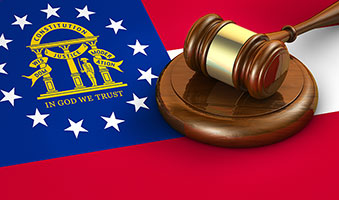Undisclosed is a podcast that investigates wrongful convictions. Its second season focused on Joey Watkins, who was convicted of felony murder in Georgia and sentenced to life in prison. Watkins’ conviction has also been investigated by the Georgia Innocence Project, which is seeking a new trial on Watkins’ behalf.
The petition for a new trial is based in part on a juror’s admission that she conducted her own investigation based on the testimony she heard from two expert witnesses. She voted to convict Watkins after deciding it was possible for Watkins to have been at the crime scene, contrary to the testimony of a defense expert.
Facts of the Case
Isaac Dawkins was shot in the head as he was driving home from Floyd college in January 2000. Watkins contended that he was nowhere near the site of the murder and had nothing to do with Dawkins’ death. His lawyers blamed his conviction on the emotional trial and on the depiction of Watkins as a “troublesome bad boy.”
Prosecutors claimed that Watkins resented Dawkins because Dawkins briefly dated Watkins’ girlfriend during one of several “breaks” in their relationship. By the time of the murder, however, that relationship had ended and both Watkins and his former girlfriend were dating other people.
Dawkins’ best friend told the police that Watkins was Dawkins’ only enemy. Undisclosed assembled a “people map” of ten teens and their shifting alliances, many of whom testified as prosecution witnesses. The podcast suggests that some of the teens enjoyed the drama of being in the spotlight, but their hearsay accounts of conflicts between Watkins and Dawkins seem more the stuff of legend than reality.
For example, while several of the teens claim that Watkins shot at Dawkins on an earlier occasion, none of them actually saw Watkins and the police who were summoned to the scene found no evidence that the locked house from which the shot was allegedly fired had been occupied. The story nevertheless proved to be a popular rumor as it was told and retold in the months that followed.
In reality, Watkins was in a different state at the time of the alleged shooting. The police found no evidence that a shot was fired, but even if it was, Watkins could not have been the shooter.
The unfounded rumor not only persisted, it convinced the police that Watkins was the most likely suspect in Dawkins’ later shooting. Prosecutors claimed that Watkins conspired with Mark Free, who either drove the car from which the shot was fired or actually fired the shot. Free was charged in a separate case and a jury found him not guilty. Unfortunately, related verdicts that are logically inconsistent are not a basis for reopening a guilty verdict in Georgia.
Cellphone Evidence
Watkins spent the afternoon of the murder fishing in Alabama with his uncle. He called and texted his girlfriend several times during the day and, after he got home, made some additional calls to arrange another fishing trip. Watkins says he was driving to his girlfriend’s home that evening when he passed a crashed truck that he recognized as belonging to Dawkins. Two hours later, after visiting his girlfriend, he passed the truck again on his way home.
Dawkins’ truck crashed at 7:18 p.m., but it took the police an hour to notice that Dawkins had been shot in the head. Watkins maintains he left his home at 7:15 p.m. and could not have been in the vicinity of the crash at that time.
Watkins’ cellphone records show that he made a 4-minute call that began at 7:15 p.m. The prosecution relied on an expert witness from Verizon who testified that the call was transmitted through a tower in Kingston.
According to the prosecution, the call could place Watkins near the murder scene if the cell phone was “at an adequate elevation and on the border of the Kingston coverage area.” The defense countered with an expert from Georgia Tech who testified that call could not have been made at a location just minutes away from the shooting scene because there were “just too many hills in the way.”
Juror Misconduct
Jurors are supposed to base verdicts on the evidence they hear in court and nothing else. The judge in Watkins’ case admonished the jurors “not to go measuring distances or stopping by the scene or investigating on your own.” Unfortunately, one of the jurors did just that.
During a weekend break in deliberations, when the jury was 10-2 in favor of conviction, one of the jurors drove to the scene of the shooting from the closest point where she believed the cellphone could have connected to the tower. She timed the drive and concluded that Watkins could have made it to the murder scene after he initiated his call and before the shot was fired. She then changed her vote to “guilty.”
Watkins is basing his request for a new trial on that juror’s misconduct. Watkins’ lawyers also contend that evidence undermining the prosecution’s proof of guilt was withheld from the defense during Watkins’ trial. Among other withheld evidence, the prosecution failed to disclose that the police did their own drive test, the results of which were presumably unhelpful to the prosecution’s case.




